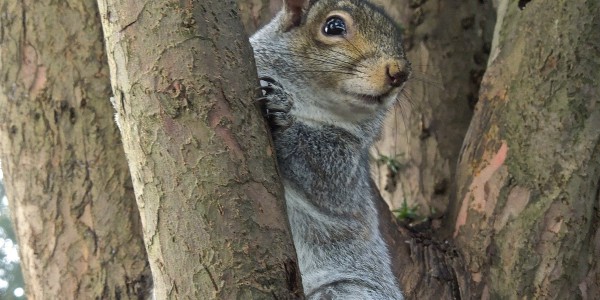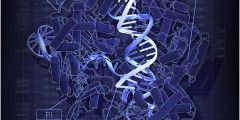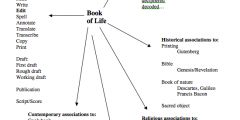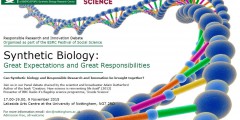Climate science and climate fiction: Alarmist, really?
December 6, 2015
For more than 25 years, climate scientists have warned politicians and the general public about the dangers posed by global warming. Sometimes they have been listened to; more often then not they have been accused of alarmism. For more than a century, novelists and film makers have explored the possible, often catastrophic and dystopian, effects …
COP21: A new chance for common sense and common action?
November 30, 2015
Professor Michael Brüggemann and his research team at the University of Hamburg have set up a blog called Media Watch Blog. This blog will report on the Paris climate summit, COP21, as it unfolds. Here is my contribution to the blog, reposted below in a slightly longer version. ••• The 2015 United Nations Climate Change …
The book of life: Reading, writing and editing
November 22, 2015
I have been observing the use of the ‘book of life’ metaphor in genetics and genomics since the year 2000, when it was used to announce that the human genome, our entire DNA, had been roughly sequenced. The Human Genome Project had begun in 1990 and was completed in 2003. Its achievement consisted in finding …
Pro-Christian, Anti-Muslim or Anti-Refugee? What is behind European politicians’ statements favouring Christian refugees?
November 12, 2015
In the midst of what has come to be known as the worst refugee crisis of our generation, the wrenching images of a toddler lying dead on a Turkish beach emerged as evidence of a reality that cannot just be captured in words. This has seen many calling for the need to shift the debate …
Synthetic biology comes to Nottingham (ESRC Festival of Social Science)
November 4, 2015
On Monday we are convening a public debate about synthetic biology and responsible research and innovation as part of the ESRC’s Festival of Social Science. You are all welcome to join us! Us means: Adam Rutherford as chair, Hilary Sutcliffe, Andrew Balmer, Klaus Winzer and Peter Licence on the panel (see brochure) and myself as …
‘Serendipity carried through to perfection’ – thoughts on the Cassini mission
November 2, 2015
I am, as some of you might have noticed, an avid follower of …. not fashion but space exploration. I have ‘flown with’ Hubble, Voyager, Rosetta, Philae and New Horizons; I ‘follow’ Curiosity’s progress on Mars; and now I am entranced by some of the images that Cassini is sending back from Saturn and its …
Anchoring doubt
October 30, 2015
For five years now I have been interested in how doubts about climate change are expressed by whom and how. To be honest, I very much doubt I have found out anything new. However, when reading some blogs recently, something struck me. But before I come to that, lets start at the beginning. Science and …
The colours of biotechnology
October 25, 2015
I have recently been musing about images used to make science public and wondered what images are out there for synthetic biology. I knew that in the past cloning was visually represented by ‘Dolly the sheep’ or ‘armies of little Hitlers’, nano found its visual incarnation in nanobots and fantastic voyage, but what images would …










